Code-switching. It’s the ability to use language and behavior to move across racial, cultural, and social lines. As people, we need not only to be understood in our own communities but also in other communities and the broader world. To do that, we code-switch. It’s our way of connecting with those who wouldn’t understand us otherwise. But does code-switching mean deleting parts of who we truly are? Broadway star and Drama Desk Award nominee Jelani Alladin (@JelaniAlladin) doesn’t think so.
“I know how to use the American language as cuttingly sharp as anyone else can, so come at me with that,” says Alladin, who says he’s the first man of color to originate the role of a Disney prince on Broadway (Sure, Kristoff in Frozen isn’t technically a prince, but, Alladin says, that’s how the Disney franchise thinks of him.) Alladin understands the importance of his place right now in today’s industry as a pioneer for other actors of color and the next generation of Black boys and girls, who can see themselves through Alladin on stage. [Note: The author and Alladin are colleagues.]
For Jelani, code-switching is based on environment.
“If I’m hanging with my friends in Brooklyn… or if I’m with my family at home in Brooklyn, the way I connect to the environment is gonna be much different than the way I connect with the people in…New Canaan, Conn., where I went to high school.”
Alladin is a native of Brownsville, which he describes as, “Quite possibly the hoodest place in Brooklyn, next to East New York.”
Growing up, Alladin recalls, omnipresent gangs and teen pregnancies were the norm in his neighborhood.
“That was a reality… I was even typing and talking differently then, but that’s always going to be part of my DNA. You don’t ever want to feel that you are different, so I dressed a certain way and acted a certain way [to fit in].”
Alladin’s world turned around at New Canaan High School as a young recipient of the program, A Better Chance (abetterchance.org), which helps academically-talented students of color gain access to some of America’s top-performing schools. The shift from Brownsville to New Canaan was major.
One of just five Black students at the school, Alladin recalls kids there were wealthier, whiter, and more “pulled together.” The then-13-year-old Alladin knew he had to adapt to survive. “At that young age, when you’re trying to protect everything that you are, you kinda have to morph who are you, to fit in.”
His first year at New Canaan, Alladin recalls he was asked to give a speech. He was instructed to write the speech ahead of time, and practice out loud in advance. “In that moment, I realized I couldn’t go up there and act any old way and say just anything. It had to be calculated. I couldn’t just say, ‘Yo, wassup? My name is Jelani’… I’ll never forget [that] because I was like, Oh… It’s still talking to people but it’s a different way of talking to people. I need to meet them where they are.”
For Alladin, dividing time between New Canaan and Brownsville underscored what he needed to move seemlessly between many intersections, not just at school with friends, but with his family as well. Part of an immigrant family from Guyana (a small South American country), Alladin is both a first-generation Guyanese-American and an African-American, which impacts the languages he already knows.
Alladin’s ability to code-switch is an advantage as an actor. “When I walk into a room and go in for a certain role, I’m able to access [that role] honestly.” He feels like he can see people for who they truly are, because he can understand them — and in return, he becomes more relatable.
“As an African-American, people see your picture and paint you a certain way. And it’s up to you to either meet what they paint — or defy or change what they’ve painted in their minds.”
Actors of color are constantly having to prove themselves, he says, often working twice as hard to receive half as much. But the rewards can be sweet. Especially when others see and understand the complexities encoded in their melanin-enriched makeup. Nowadays, Alladin doesn’t even recognize when he code-switches. He does it automatically and subconsciously. “I almost feel like if it were conscious, it would almost be wrong. I’m going to talk differently with my coworkers at Disney versus when I’m at a family cookout.”
We all code-switch, but if this star is right, those who integrate it into their lives may have a better chance at success. Does that necessarily mean those who code-switch are assimilating at the expense of their heritage? No, says Alladin. It’s less about the need to meld into a certain demographic and more about understanding where everyone is coming from and connecting with that.“I don’t think it’s a deletion of who you are,” Alladin says. “It’s a consciousness and awareness of who you are and where your place is in the community that you’re in.”


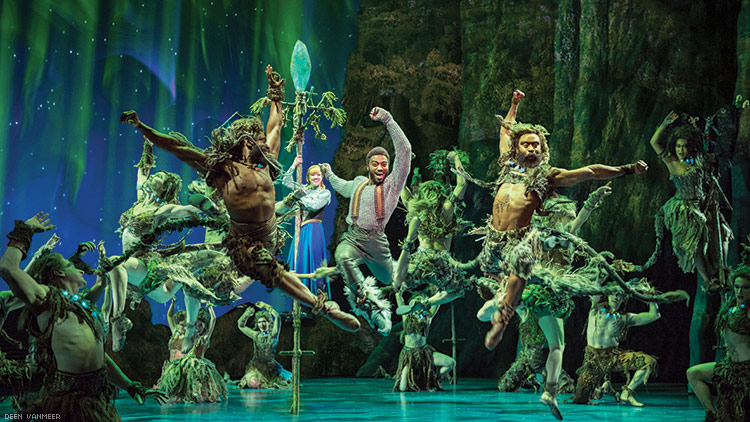


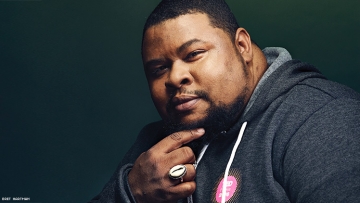
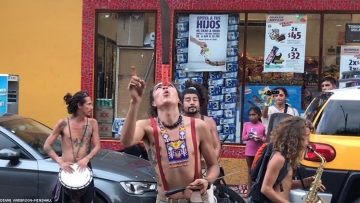
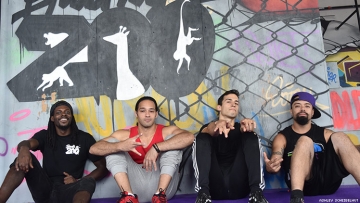
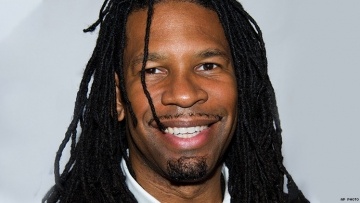






READER COMMENTS (